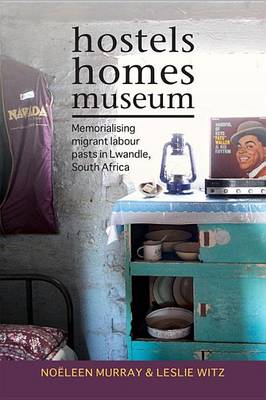During the apartheid years in South Africa, hostels and compounds were built to house migrant labour. One such hostel was Lwandle, some 40 kilometres outside Cape Town. Literally translated from isiXhosa as `the sea', because it was built in sight of the Atlantic Ocean, Lwandle was conceptualised as a temporary labour camp laid out by town planners and engineers in the form of diagonal, parallel blocks of barracks around a central open space. Administered as a compound, the labourers' lives were regulated and policed through apartheid legislation around population influx control, the pass system and the policy of Coloured Labour Preference.
In the 1990s, as part of the post-apartheid `hostels to homes' scheme, such hostels were reconfigured and refurbished into homes for family accommodation. A steering committee in Lwandle decided to preserve one dormitory, block 6, hostel 33, as a museum. Officially opened in May 2000, the primary purpose of the Lwandle Migrant Labour Museum was to serve as a reminder of the system of migrant labour, single-sex hostels and the control of black workers through that infamous identity document - the pass book.
This book explores the museum's makings, the creation of histories through the oral and the visual and the rehabilitation of structures as museums, ending with the celebration - and discomfort - of the museum's tenth birthday in 2010.
Recommended for: General readers and scholars interested in post-apartheid history, museums, migrancy, restoration architecture, community development, urban studies and design.
- ISBN10 1322063125
- ISBN13 9781322063126
- Publish Date 1 January 2014
- Publish Status Active
- Out of Print 4 March 2015
- Publish Country US
- Publisher Juta Academic
- Imprint University of Cape Town Press
- Format eBook
- Pages 201
- Language English
